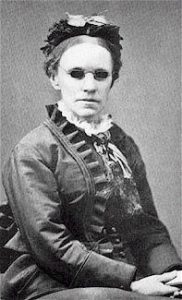Why Let It All Go?
One great advantage of classic hymns and gospel songs is that they allow our brothers and sisters of the  past to encourage us. Though they are dead, yet they speak (see Hebrews 11:4). We can’t hear George Whitefield or Charles Spurgeon or Jonathan Edwards preach, but we can hear Charles Wesley, John Newton, and Martin Luther through the songs they wrote. Singing connects us to the flow of church history and the work of the Holy Spirit in every age. We don’t just hear about that history—we hear it, in the songs we sing.
past to encourage us. Though they are dead, yet they speak (see Hebrews 11:4). We can’t hear George Whitefield or Charles Spurgeon or Jonathan Edwards preach, but we can hear Charles Wesley, John Newton, and Martin Luther through the songs they wrote. Singing connects us to the flow of church history and the work of the Holy Spirit in every age. We don’t just hear about that history—we hear it, in the songs we sing.
The contemporary church, by and large, seem to be letting go of that heritage. Many young people now leading worship services grew up with the contemporary style, and to them the old songs may seem hopelessly archaic, with its thee’s and thou’s, e’en’s and –eth’s. Who talks that way anymore? And really, is it such a tragedy if the old songs are left behind? Doesn’t every age produce bucketloads of songs that only last a generation or two?
They’ve lasted because they still speak

Indeed they do—and that’s all the more reason to pay attention to the ones that have lasted. In any traditional hymnbook you will find words dating from 1500 years B.C. (the Psalms) to the early days of the church, through the early and late monastic periods, all the way through the Reformation and revivals of the 16-19th centuries. They’ve lasted because they still speak.
Brothers and sisters, let’s not sell ourselves short—or our children. It’s true that some of the lyrics of a song written in 1750 may not be instantly comprehendable, but they’re not obscure either. If you can understand the Bible you can understand Isaac Watts. Fanny J. Crosby is not beyond the comprehension of a five-year-old. You will find, as you teach them to your children, that many of these songs have enormous staying power and will keep speaking long after most of this generation’s set of praise choruses have been forgotten.
Let us also allow our past to speak, as we locate ourselves in the mighty current of the Holy Spirit’s work from the beginning.
This is not to disallow praise choruses or new songs—let’s sing them loud and joyfully. But let us also allow our past to speak, as we locate ourselves in the mighty current of the Holy Spirit’s work from the beginning until now. Let’s include those voices as well as our own, and equip our children to write their songs, too, so the heritage will go on. Hymnody (to use a classic churchy word) is not a wheel to be reinvented, but a wagon to keep rolling. Or—to change the metaphor—a storehouse from which the householder takes treasures old and new (Mt. 13:52).

